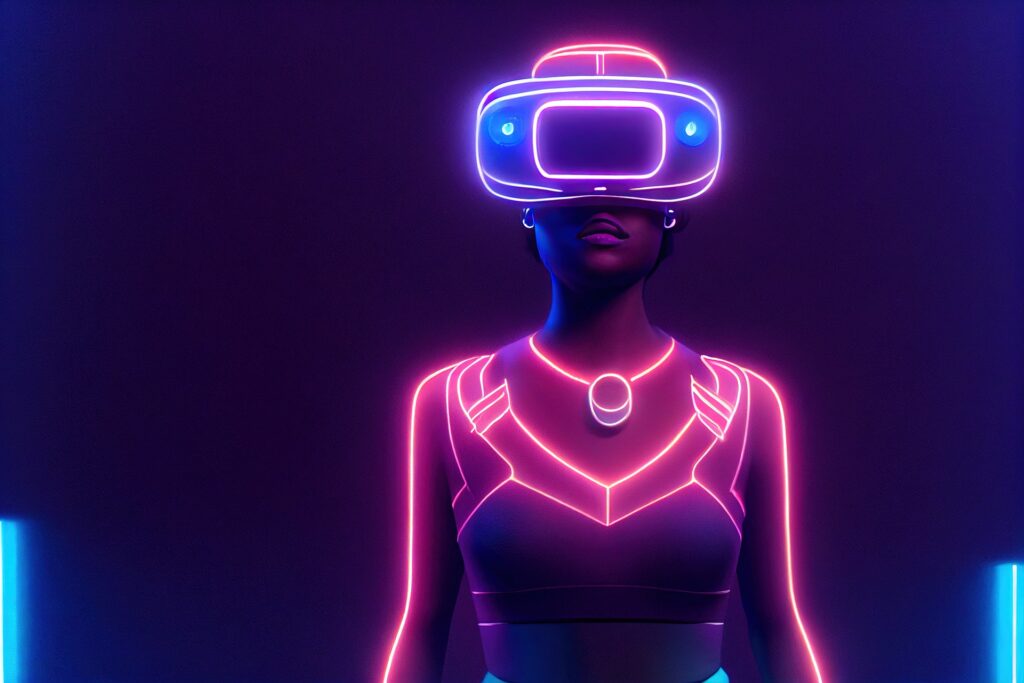
In Mark Zuckerberg’s vision of the metaverse, people would be hanging around a virtual version of an office, working on the plans for a new quarter, banging out a business agreement or basically just doing what they do in a real office.
Well, at least they will do so in the form of their digital avatars that are embedded into the virtual world, according to meta, the company formerly known as Facebook.
One question that everyone should ask, since at least a quarter of us are expected to hook up to the metaverse for work, shopping, education, social media and entertainment by 2026, is whether we want to be there as ourselves.
In an office setting, you’d imagine having little choice. After all, if you’re going to be presenting to your boss or a client, you better be who you say you are.
They might even demand it, say, via an immutable record of a digital ID that a distributed ledger can provide.
However, such a scenario assumes that we all want a replica of what we see in the real, physical world.
How dreary, for example, would it be for a client to visit a virtual office that looks just like another vanilla-coloured space?
Could there not be something fantastical, you know, virtual about it? A snazzy piece of furniture perhaps or even an office perched high in a tree in a rainforest, say?
The same can be said of the characters or avatars that inhabit such virtual worlds. Should a digital version of a person still be dressed in the same boring office outfit in the metaverse or be togged up in something fancier?
This is the paradox that the metaverse faces today. Many of its proponents talk about it being a digital twin of the real world, that is, doing all the things that we do in real life but in a virtual setting that transcends geographical location. The question is why.
Conversely, there are those who think of the metaverse as a virtual paradise of sorts, where you can live out your fantasy as someone totally different from who you are in real life.
Yes, people already do that today in games, which are the most commonly accessed virtual worlds or proto-metaverse of sorts. And in many ways, in any digital platform, from Instagram to Tinder, users often project themselves as someone else to the watching world.
What do these two differing versions of the metaverse have in common? A problem with digital identity, which will become increasingly important.
Users will rightly be wary of metaverse platform creators that want to track their every action in a virtual world, rather like the physical world today via Google Maps, for example.
Could something you do in one virtual world, for example, in a game world be bad enough for you to be sacked in another that is set in a corporate digital sandbox?
Today, people’s tweets from years ago can be brought up as a sort of belated character assessment, as can early social media pictures you had snapped and shared on Facebook in your misspent youth.
Canada’s prime minister Justin Trudeau was outed in 2019 for wearing “blackface” on more than one occasion while much younger. Imagine being plugged into the metaverse all day and having everything recorded for posterity – there would be a lot to find out.
In the brave new metaverses of tomorrow, a question of digital identity will surely come up, just like it has in today’s 2D, boring Internet.
Already, there are efforts to push for anonymity and for one’s online history to be deleted. In the European Union, the right to be forgotten is crucial – an information society need not be a surveillance society.
The same should be made possible for a more immersive virtual world that people might find even harder to extricate their data from, especially if so much of their lived experiences may be stored on the metaverse in future.
Anonymity should be a feature that’s allowed, at least in some form. Just as digital IDs are important today to safeguard against fraud, there have to be spaces for people to meet privately and without being tracked.
Plus, you should be able to turn up online in an avatar of a barbarian even if you are a skinny geek, or as a savvy dancer on a virtual stage even though your feet can’t get sorted out in real life.
Losing the fantasy element and making the virtual world a copy of our dreary existence would make tomorrow’s metaverses a boring place to log in to. Yes, rather like commuting to work.
















